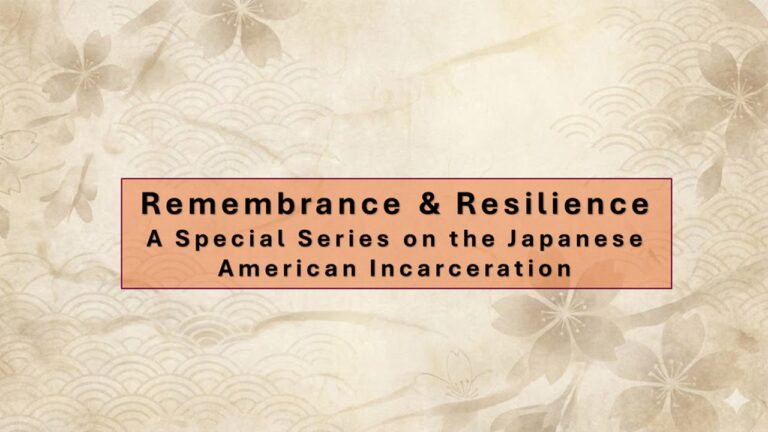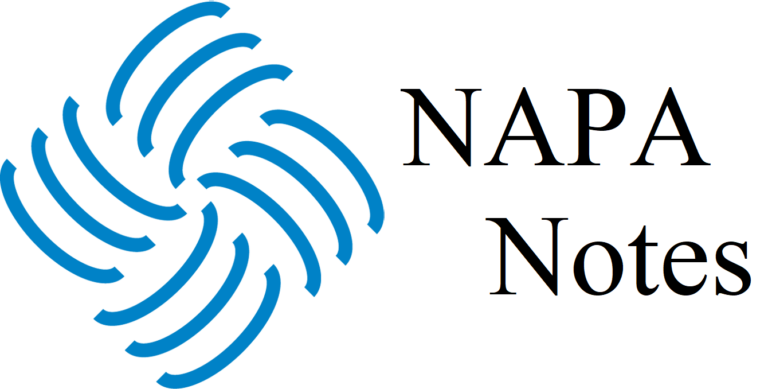National Association for the Practice of Anthropology
sNAPAshots: Steven Thomson

This work is licensed under a Creative Commons Attribution-NonCommercial-ShareAlike 4.0 International License.
Transcript
Interviewer 0:06
Welcome to sNAPAshots, conversations with professional practicing and applied anthropologists.
Interviewer 0:12
[On Screen Text] Steven Thomson Practicing Anthropologist Organizational Performance
Steven Thomson 0:19
I’m Stephen Thompson. I am a practicing anthropologist. I was trained in Political Economy and International Development and African Studies, and mid career made a shift to being really an organizational anthropologist, really focusing on performance excellence and organizational development and really the practicing side of the anthropology of work. How does work get done? What does it mean to work? How do we work together? How do we work more effectively? This morning, I am joining you from my home office. I am a middle aged white male with a half beard and glasses. I am wearing a French blue shirt today, and in the background, you can see part of my professional library, a collection of conference tags and a map of the portion of West Africa where I did my doctoral dissertation field research. This is my second anthropological career, right? I taught and did research, and now I’m a practicing anthropologist. Right when I was in the middle of that career transition, trying to figure out how to build a career and build credibility as an organizational anthropologist, as a consultant, as somebody who businesses and organizations wanted to work with. And I was at a conference. It was a conference of city managers, and I was in the breakfast line, and somebody walked into the breakfast line behind me, and they said, Hi, who are you and what do you do? And I stumbled, and I thrashed around, and I tried to explain what anthropology was and all sorts of things. And this guy, I still remember him. I know his name. I still know where he works. Talked to him in a number of years, he looked at me and he said, whoa, whoa, whoa, stop, stop, right there. If you are going to do this, if you are going to be successful in reaching out to people who are running businesses and cities and organizations, if you are going to do this work that you clearly are interested in and passionate about and want to do, you have to be able to explain what you’re doing a lot faster. And by the time I reached the end of that breakfast buffet line, I had my personal mission statement.
Interviewer 0:19
[On Screen Text] How has the Anthropological mindset enhanced your contribution to your workplace?
Steven Thomson 0:52
My work demands that I be really thoughtful and critical about quantitative measures, understand how important they are to people, and how important it is to get them right with all of their limitations and all of the problems with quantitative data, and then to be really smart about bringing qualitative data rich stories and nuanced descriptions and understanding of complex systems, and to bring that to bear at the same time. The numbers are important. They rarely tell a compelling story. They rarely tell the full story. So I am constantly balancing qualitative and quantitative data. That’s just, that’s just anthropology 101, right? That’s just like, that’s what would do, right? I am always, every single day at work, I am doing research. I am interviewing people. I am observing closely. I am trying to watch what’s being said and what’s not said. Paying attention to tacit knowledge. I’m paying attention to what does this person know how to do that they can no longer explain what it is they do or how they do it. Right? That idea of embodied knowledge, of tacit knowledge, of knowledge that we don’t even know we know anymore. That’s a fundamentally anthropological insight and a focus of anthropological research. I am fascinated by the idea of distributed cognition, which is kind of wonky anthropology stuff, right?
Interviewer 0:52
[On Screen Text] Distributed cognition theory suggests knowledge is not solely in one’s mind, but distributed across people, tools, and the environment.
Steven Thomson 0:52
But it’s really that idea that organizations work because we specialize and we can’t…There is no single human brain that can encompass all of the details and complexities of what’s happened in organizations. That’s why we have organizations, and figuring out how to make that practical idea, to make organizations think better, by which I don’t mean make individuals in the organizations think better. Distributed cognition means that the organization thinks which is a very strange idea that is not common sense, but it is anthropology.
Interviewer 0:52
[On Screen Text] What industry challenges do you solve with an anthropological perspective?
Steven Thomson 0:52
I have a personal mission statement. It’s a little crude, so my apologies, but it’s really important to me, and it’s important to me, because I use it every day to motivate myself and to make decisions about what I’m going to do and what I’m not going to do. My personal mission statement is that “noble work shouldn’t suck”, and that means a lot of things, right? It means that if the work is worth doing, we shouldn’t do a bad job. Product should not be bad. But if the work is worth doing, the experience of doing the work should not be bad. And that drives everything I do, right? Everything I do is about either making the product, in my case healthcare, that my organization produces better, better for the patient, better for the community, better for the organization, and better for the people who work in the organization. All of those things are important, and they all rely on each other, and it’s not a situation where there’s trade offs anything I do should make the product better, the work better, the organization stronger, the community, healthier. Noble work shouldn’t suck. That’s a value that I can support and defend and be motivated by and make decisions with.
Interviewer 0:52
[On Screen Text] What skills do you use in your work as an anthropologist, and how do you apply them in your field?
Steven Thomson 0:52
Can I tell you about project management, which we don’t usually think of as an anthropological skill, and yet, I learned how to be a project manager by being an anthropologist. Anybody who has conceived of a research question and found whatever funding they needed and negotiated access to a research site, made sure that they were doing something productive every day and that it aligned with their purpose. Somehow, even if that purpose was evolving, anybody who got that that research project completed and produced something, something that was important, something that was valuable to them, or to the community that they were researching, or to an academic community they’ve done project management.
Steven Thomson 0:52
[On Screen Text] What advice would you give to future anthropologists seeking roles in professional, practicing, and applied fields?
Steven Thomson 2:29
My number one piece of advice is to actually embrace anthropological theory and to really steep yourself in it. That may be a little counterintuitive, right? Everybody wants to say, you know, learn your anthropological methods and get experience and build a portfolio, and do you know, really show that you build a network right? Show that you can do the work and that you can make a practical difference, all that’s important, like, I’m not saying don’t do that, but really steeping yourself in anthropological theory is actually one of the things that’s going to give yourself, give you a an edge and a long term career. It’s what is going to give you the skills and the resources come up with something really new and different. To come up with an insight that your colleagues who are organizational psychologists or organizational development people, or MBAs, or any of those other great disciplines who, by the way, also send people out into the world to do many of the things that practicing anthropologists do. The thing that makes you a practicing anthropologist is anthropological theory, and that’s what in very subtle ways, in ways that you may not always be aware of. It’s what will make you stand out. It is what will make you a little bit different. It is what will make you a unique contributor to your team. Do some crazy theory stuff at some point, really think deeply about what is culture anyway, and what is language. Oh, my God, that’s mind blowing, right? We use language to do everything, but to think about what it is that’s anthropology!
Credits 10:11
PRODUCED BY Niel Tashima Cathleen Crain Joshua Liggett DIRECTED BY Reshama Damle EDITED BY Whitney Margaritis MUSIC VIA PIXABAY: “FAT CHILLIN” by LAZY CHILL ZONE, “LOFI HIPHOP BACKGROUND MUSIC SUNDAY MORNING” by LVD RECORDS ADDITIONAL FOOTAGE VIA PEXELS BY: ANASTASIA SHURAEVA CLAUDIA EDMOND DANTES PIXABAY PRESSMASTER
Interviewer 10:13
Like what you see. Let us know. Find us at practicinganthropology.org LinkedIn, meta, X, BlueSky and YouTube.
10:22
[On Screen Text] Many Thanks to NAPA’s Governing Council for supporting sNAPAshots. NAPA is a section of the Anthropological Association.
Volunteer Plug 10:22
[On Screen Images] Starbursts with the words: Social Media, Organization, Promotions, and Events. [On Screen Text] Want to volunteer with NAPA? We’d love to hear from YOU! Contact: ntashima@ltgassociates.com
AAP Plug 10:22
[On Screen Text] Stay connected with 40 Years of The Annals of Anthropological Practice. [On Screen Image] AAP Cover Page. [On Screen Text] https://practicinganthropology.org/communicate/submit-to-the-annals/
Interviewer 10:54
sNAPAshots
Transcribed by https://otter.ai



![[NAPA Logo] sNAPAshots: Conversations with Professional, Practicing, and Applied Anthropologists. Rosalie Post, Design Anthropologist, Co-founder of NAMLA. PracticingAnthropology.org Bluesky, X, Meta, LinkedIn, and Youtube Logos](https://practicinganthropology.org/wp-content/uploads/Rosalie-Post-LinkedIn-Flyer-768x768.jpg)